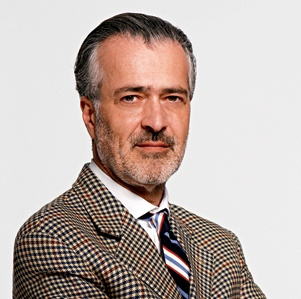The 112th Congress and Iran

The 112th Congress of American republic began its first session on January 5th, 2011, presided over by a new Republican Speaker, the almost comically lachrymose and perpetually tanned John Boehner. The new Congress, like almost all that preceded it, is focused mostly on domestic affairs, and in an era of partisanship and even extreme hatred of President Obama (seemingly for no reason other than he is Obama), Boehner has promised that Congress will prioritize repealing the health care bill (which will unlikely have enough support in the still Democrat-controlled Senate, and without a two-thirds Republican majority in Congress no chance to override a presidential veto), cutting federal spending, and challenging Obama on policies intended to strengthen the economy and create jobs. What is evident is that President Obama will face a far more hostile House for the next two years, one that he will have to maneuver around and compromise with in order to get anything done in the remaining years of his first term in office, and his choice of William Daley as his new Chief of Staff reflects the White House’s continuing concern with the economy as well as its commitment to bipartisanship. Less clear to some foreign observers is how the new Congress will affect U.S. foreign policy, and in particular the pressing issues of Iran’s nuclear program, the Palestinian-Israeli peace process, and the conduct of the war in Afghanistan.
Foreign policy is within the purview of the executive branch of government, and major policy decisions are made at the White House. (The last Senate may have held up Obama’s ambassador to Syria appointment, among others, but he was able to send an ambassador to Damascus anyway, using his powers to make a recess appointment at the end of the year.) As such, it is unlikely that the Obama administration’s foreign policy will change much, even with a Congress controlled by the opposition party. The new chairwoman of Congress’ powerful Committee on Foreign Affairs, Ileana Ros-Lehtinen, is clearly a vigorous opponent of Iran and a diehard supporter of Israel, and she intends to challenge the administration on its Iran policy as well its position on the Palestinian-Israeli conflict by calling hearings and grilling administration officials, introducing anti-Iran bills, and generally making news as well as a nuisance of herself (while greatly pleasing her supporters at AIPAC, the most powerful Israeli lobby in the U.S.). But Ms. Ros-Lehtinen does not have the ability to make policy, nor does she control the purse strings in Congress, and while President Obama will be under more pressure to take a harder line on Iran, express more support for Israel and to continue US policy of refusing to engage with Hamas or Hezbollah, he will not be bound by the Committee’s findings. Naturally, Obama will need the support of Congress on other issues, and foreign affairs could potentially fall victim to compromise on what the White House may consider more pressing matters (or vice versa, as in the tax cut extension at the end of 2010 and the ratification of the START treaty).
Ros-Lehtinen was quoted in December as saying that “Iran is number one, number two and number three" on the House Foreign Affairs Committee to-do list, which might, I suppose, mean that Turkey and Syria, other targets of Ros-Lehtinen’s ire, may relax for the moment, but her chairmanship shouldn’t raise too much concern in Tehran, either. To-do list? As in, to do exactly what? Impose additional sanctions or tighten existing ones? Go to war? Remove the Mujaheddin-e-Khalq from the U.S. terrorist list as some of her equally uninformed colleagues would like to? Impose a total embargo on Iran, much like the one on her native Cuba, which must’ve, uniquely in her mind, been fabulously successful in changing Fidel’s mind these past fifty years? Make regime-change in Iran the official policy of the United States? Ros-Lehtinen may wish for all those things, but she will not be in a position to actually bring them about. Obama will be under pressure to publicly take a harder line on Iran, particularly in the case of expanding sanctions in the event talks over the nuclear issue go nowhere, but there was never an indication that he or anyone in the administration would suddenly go soft on Iran, not after two years of escalating pressure spearheaded by Iran hawks in the administration who include Stuart Levey at Treasury, Dennis Ross at the White House, and Hillary Clinton at State.

